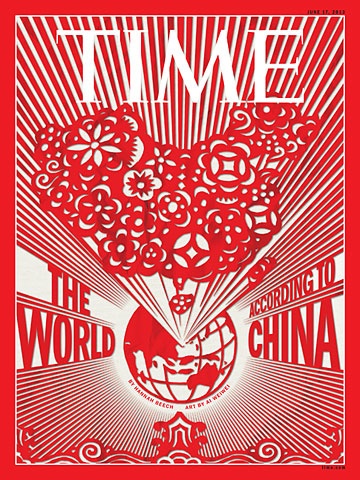
(6 of 7)
Chinese emigration used to mean an escape from war and famine, railroad workers flooding Gold Rush California or wok stirrers crowding New York City tenements. But most Chinese emigrants today are, like Guan, wealthy. In 2011, about 80,000 Chinese received U.S. green cards. (Beijing does not allow dual nationality, so some Chinese prefer permanent residency to foreign citizenship.) "I wanted a better life, and I wasn't going to get that in China," says Li Yanan, a Chinese businesswoman who arrived in Singapore in 2002. "So many deals back home are done under the table, and I got tired of that."
The exodus from China has only increased since then. Rich Chinese, after all, have to breathe the same air as everyone else, and smog in urban centers spiked to record levels earlier this year, with pollution surpassing that of a smokers' lounge. Food-safety scandals, ranging from a river full of dead pigs to babies poisoned by fake formula, make the simple act of eating hazardous. There's also a concern that one of Xi's central campaigns, a crackdown on corruption, could jeopardize fortunes made in fast-and-loose ways. Corrupt Chinese officials have a habit of fleeing abroad. In 2011, according to U.S. watchdog Global Financial Integrity, China hemorrhaged more than $600 billion in illegal capital flight.
Roughly 300,000 Chinese per year now study overseas, and a large portion pay full freight. Even as select Chinese schools have grabbed top marks in the Organisation for Economic Co-operation and Development's rankings of math, reading and science performance among 15-year-olds, many parents worry about the merits of an education system based on rote memorization. Virtually every member of China's Standing Committee, the seven men who rule the nation, has extended family who studied abroad. Even Xi sent his daughter to Harvard. The state of Chinese education is especially relevant as China must push its economy beyond churning out cheap exports. So far its universities have done a poor job at breeding innovation. As Singapore's Lee noted last year, all eight ethnic-Chinese Nobel laureates in science were or later became Americans. "Our government cannot provide good education, welfare and a sense of security," says Fesy Li, marketing manager of Globe Visa, another Chinese emigration agency, which is peddling options in St. Kitts and Nevis, Latvia and Vanuatu. "Chinese believe they can find these things in other countries."
A Dream Deferred
With Mounting Unease on the home front, Xi is relying on flag-waving to unite the masses against a common foe, be it the U.S., Japan or even the Philippines. Primed by patriotic education, Chinese youth expect their leaders to stand up to the outside world. But this spring, an online forum linked to the People's Daily, the government's mouthpiece, asked people whether they agreed with Xi's rhetoric, including elements of the China Dream. Thousands of people responded, and at least 70% said they disagreed with their new leader's principles. The poll was soon pulled off the Web.
